School Field Study trips
While any school trip where children are taken on a learning experience outside the normal classroom could be described as a field trip, when we talk about field work or field studies we are specifically referring to trips that cover geographical or environmental science topics, and those designed to allow students to make quantitative research such as sampling strategies, or qualitative observations of their immediate surroundings from a scientific perspective.
What sort of activities can children get involved in?
The National Curriculum for KS2 states that Geographical field work skills that children should be able to demonstrate include, measuring and recording features the urban and rural landscape using methods such as plans, maps, and digital technologies. For KS3 it suggests that students use field work to collect, analyse and draw conclusions from geographical data.
More specifically, on a field work school trip students could be asked to carry out various forms of sampling in order to find statistical significances. They may record levels of light, temperature or humidity to study micro-climates. River processes and flooding analysis may be assessed by measuring channel velocity or mapping techniques. Coastal erosion management practices or urban economic development trends may be studied using historic data sources.
On this page you will find details of the best environmental studies centres in the UK. Covering all key stages, the courses available below will provide your students with practical experience that will improve their understanding of environmental issues.
Find a school trip or workshop for the following Fieldstudies topics: Coastal, Ecology, Ecosystems, Geology, Landscape Management, Mapping, Rivers, Sampling and Statistics, Sustainability, Towns and Cities, and more.

Dale Fort FIeld Centre
 School Trip Wales
School Trip Wales Subjects: Science, Biology, Geography, Environmental Geography, Human Geography, Physical Geography, Bushcraft, Fieldstudies, Geology, Physical Education, Team Building, Watersports, Wildlife
Subjects: Science, Biology, Geography, Environmental Geography, Human Geography, Physical Geography, Bushcraft, Fieldstudies, Geology, Physical Education, Team Building, Watersports, Wildlife
Dale Fort is set in a spectacular location high on the cliffs within the Pembrokeshire Coast National Park, giving superb views over the sea. It has access to a wide range of sites for biology, geography and adventure activities at all ages.
Dale Fort FIeld Centre
Where are you and what would you like to do?
Scroll down to see some suggestions, or use these filters to refine your interests
Fieldstudies school trips and workshops
Please use the search filters above to view our full range of Fieldstudies school trips relevant to you.

Unforgettable Day Visits at The Hive
London & South EastSuntrap is located in the heart of Epping Forest which hosts a rich variety of habitats including woodland, grassland, heath, rivers, bogs and ponds, providing us with a wealth of flora, fauna and wildlife to study on the site itself and surrounding area.

Shepton Mallet Prison - Education Behind Bars
South WestShepton Mallet Prison offers a range of subjects which can be undertaken during your visit. These include Psychology & Sociology, Crime & Punishment, prison through the ages, Law, History, Citizenship, RE, PSHE, Architecture, Tourism & Events, Media & Marketing
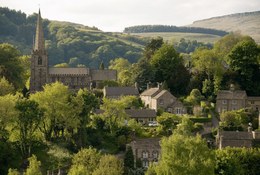
St Michaels Environmental Education Centre
East MidlandsChoose from a selection of Adventure walks, and discover local history and geography: Stanage Edge Padley Chapel Bole Hill Quarry Eyam Castleton Hope Or enjoy a shorter local walk, a favourite is a visit to Thorpe Farm to try the local ice cream!

Unforgettable Residentials at The Hive
London & South EastSuntrap is located in the heart of Epping Forest which hosts a rich variety of habitats including woodland, grassland, heath, rivers, bogs and ponds, providing us with a wealth of flora, fauna and wildlife to study on the site itself and surrounding area.
Supporting fieldwork and outdoor learning for all
Top 5 ways The Field Studies Council are supporting teachers, schools, parents and children to benefit from fieldwork and outdoor learning.
continue reading...
Why outdoor education is an essential part of every childhood.
outdoor experiences provide opportunities for development and growth, including exploration, hands-on learning and risk-taking.
continue reading...
Field Studies Council
Jess from the Field Studies Council talks to us about the latest exciting new changes and events taking place.
continue reading...
Why is fieldwork important for students?
Field studies is an important part of geographical or scientific investigation. Classroom based learning can give students facts and figures to support ideas and concepts, but if you are able to support this type of learning with fieldwork, you can dramatically improve your students' understanding of the subject.
Where can we go to do fieldwork?
The easiest option is to take your group to a local park or town centre to undertake fieldwork at a local level. Studying eco-systems or biodiversity, habitats, food chains, rural land use and woodland management may tick the coursework box, but will only give your students an entry level understanding of the subject. Tell your students that they are going on a trip to the coast to measure the impact of tourism on the local economy and they hear, we are going to the seaside for the day. Tell them they are going to be using choropleth mapping to study population trends in the city centre, and they will hear, we are spending the day in town rather than the classroom. So how exactly do you get your students inspired by field work?
Planning exciting and inspiring field work
Depending upon where your school is located, by travelling further afield and perhaps taking a multi day trip, you can open up far more interesting opportunities for your group. A school field studies course could be a single day; more concerned with gathering data to be interpreted back in the classroom, or may last several days - allowing more detailed investigation into methods and techniques of data collection, as well as on site analysis.
In the UKCoastal studies are the obvious example of a situation where you may need to travel. Other topics of study where you are likely to find better examples to study if you are willing to travel include watercourse pollution and river management practices, limestone pavements, river braiding or flood plains, and historic processes such as glaciation and peat bogs.
OverseasSome schools take the additional step of investigating the options beyond the UK. Iceland is a prime example of a location where KS3 and KS4 students can study volcanoes and glaciers in a way that is simply not possible at home. For those looking at human geographical areas of study such as social, economic and demographic changes, especially cities, we have seen a lot of schools recently heading for Spain. Field studies trips to Spain can easily be tailored to cross curricular subjects such as modern foreign languages and human geography.
Getting help with your field work trip from a specialist company has a number of advantages. These companies have been helping schools organise trips for years. They know the curriculum and how to tailor their area to your own specific needs and topics, helping you design a memorable learning experience for your group. They employ staff who have lots of previous experience in teaching groups just like yours. They are passionate about their local area and the knowledge they can pass on to your students.
'Research shows that children remember more, learn great social skills and develop enhanced relationships with their teachers as a result of a residential field trip. In our experience, they also have a lot of fun!'
Jane Cooper, Chief Executive
Countryside Education Trust
'Fieldwork has widespread benefits and can be a life-changing educational experience for many. Students gain many crucial skills, such as good organisation, team working, accurate observing and recording, and many communication skills. All of these equip them superbly for work in a wide range of professions as well as benefitting their personal development.'
Mel Cousins, Marketing Officer
Field Studies Council
'Inspiring children to be environmentally aware is essential to build enquiring minds, field studies visits allow children of all abilities to learn and achieve together.'
'Field studies visits allow children to become immersed in their environment, experiencing targeted learning in Environmental Science whilst covering areas of the school curriculum as diverse as STEM, Geography, Physical Education and the Arts, all in stimulating and exciting outdoor environments which allow children to grow emotionally as well as in education achievement.'
Tim Cooper, Development Manager
Groundwork South
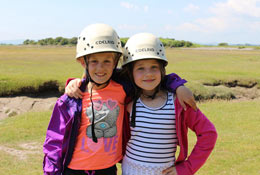


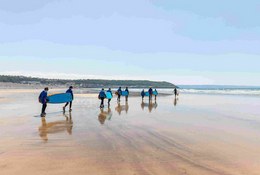
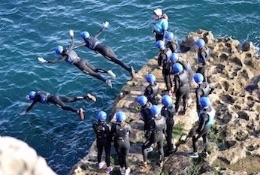

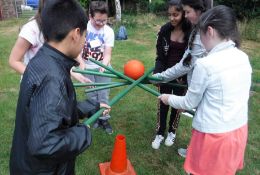


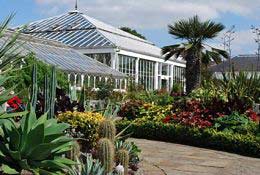


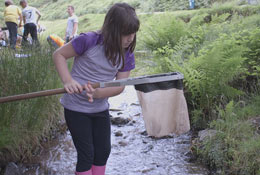




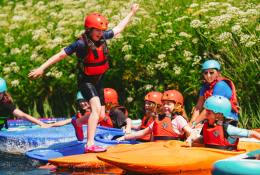






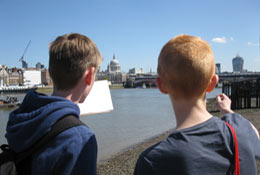

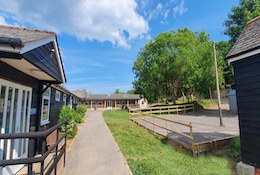






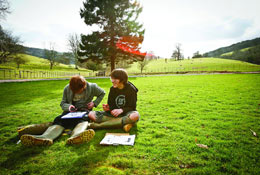



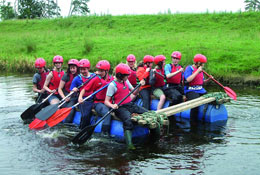








 Subscribe
Subscribe